Students’ research illuminates, amplifies Indigenous voices
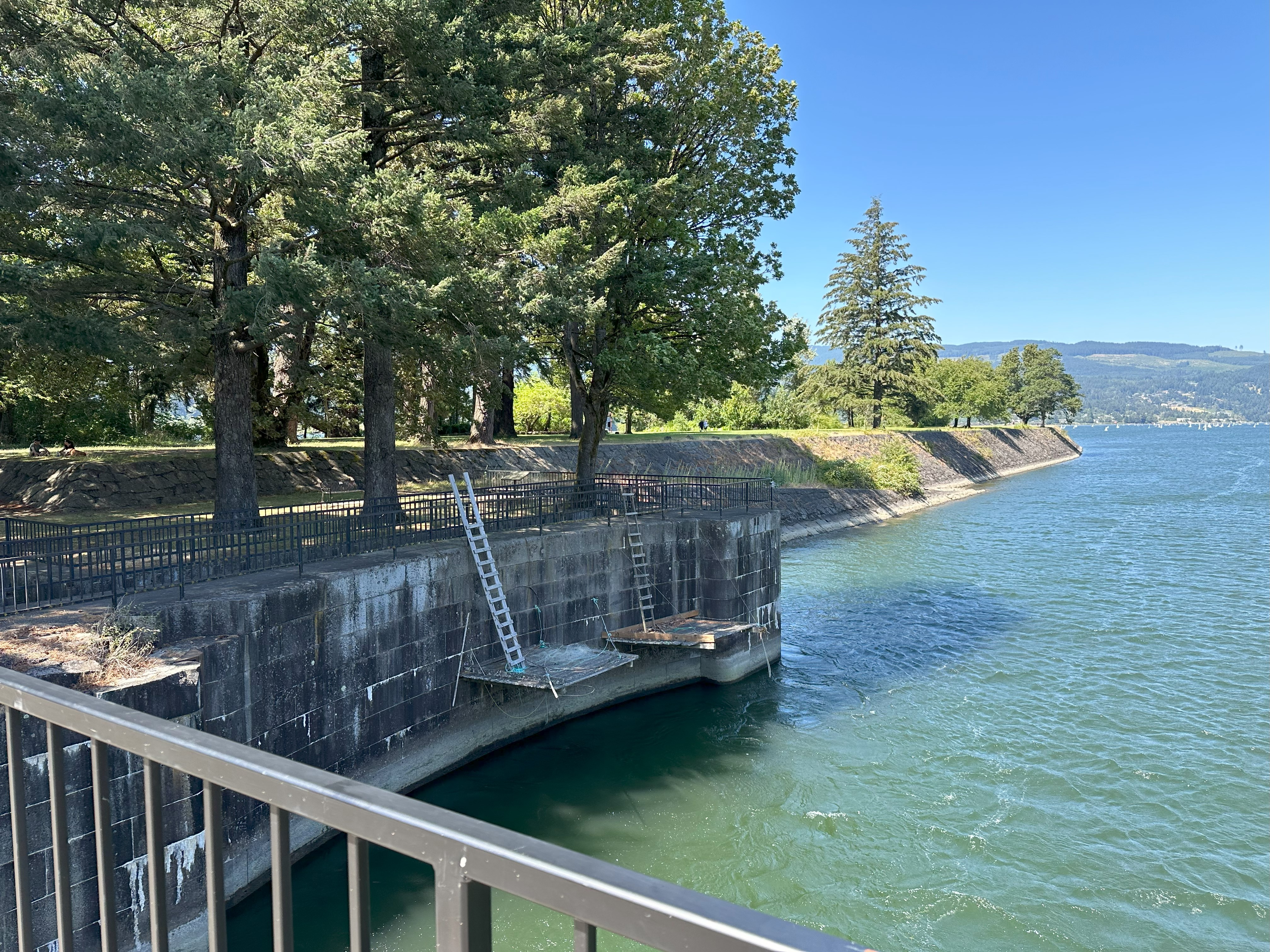 For Monroe Scholars Max Kaminski ‘26 and Sabine Mead Mexia ‘26, research is more than an intellectual enterprise – it is driven by their passion for illuminating Indigenous narratives that continue to be underrepresented.
For Monroe Scholars Max Kaminski ‘26 and Sabine Mead Mexia ‘26, research is more than an intellectual enterprise – it is driven by their passion for illuminating Indigenous narratives that continue to be underrepresented.
Mead Mexia's focus on ethical data acquisition and Kaminski’s personalistic approach to fieldwork demonstrate a shared commitment to addressing complex issues, amplifying a range of perspectives in Indigenous communities, and including Indigenous scholars in research.
Both Kaminski and Mead Mexia received funding from the Charles Center through the Monroe Scholars program to conduct their research in summer 2024, and in Mead Mexia’s case, since their first year at the university. For both scholars, who are seeking careers in the public policy field, this advocacy work is crucial to how they envision their futures.
A passion for policy and people
Mead Mexia, a government and economics double major, credits their passion for researching Indigenous histories and communities to the pandemic, when they began learning more about racial justice issues. Specifically, Mead Mexia notes, it was the Black Lives Matter movement that sparked their interest in how marginalized groups interact with political and economic systems in the United States.
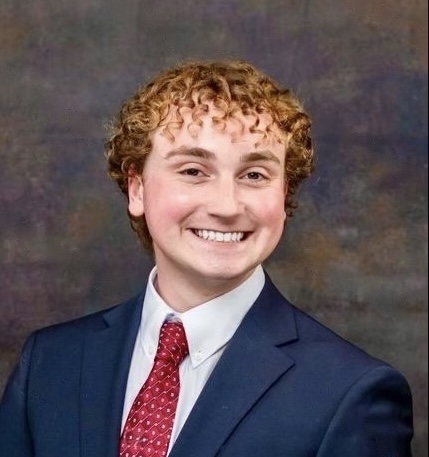 “I'm interested in public policy and how we can affect the lives of people around us through political mechanisms,” Mead Mexia said. “How can we compromise these systems, and how can we leverage them to help these communities?”
“I'm interested in public policy and how we can affect the lives of people around us through political mechanisms,” Mead Mexia said. “How can we compromise these systems, and how can we leverage them to help these communities?”
A public policy major, Kaminski originally became interested in Indigenous research through a certificate program in public history and material culture offered by the university’s National Institute of American History and Democracy (NIAHD). This program offers hands-on experiences to students interested in museum studies and cultural heritage.
The NIAHD program gave Kaminski the opportunity to take a variety of engaging history classes, including a Native American history class with Associate Professor of History Andrew Fisher. Kaminski’s interest in this class inspired him to use his Monroe Scholar summer research grant toward historical research with Fisher as his advisor.
Kaminski’s project also sought to explore interactions between the United States government and the Yakama Nation, a collective of tribes with a reservation near the Columbia River in Washington.
Historical legacies, present-day issues
Kaminski explained that in 1855, the Yakama signed a treaty with white colonists agreeing to move onto the reservation. Though the treaty reserved their right to manage the land’s resources, its terms were largely disrespected by the U.S. government until the 1960s Civil Rights Movement. During this era, Indigenous activists reconstructed practices from the movement, such as restaurant sit-ins, to highlight their own injustices.
 “In the Pacific Northwest, they would have fish-ins,” Kaminski said. “Indigenous activists would go to their traditional fishing spots along the Columbia River and in the Puget Sound, and they would call news reporters and say, ‘We're trying to exercise our treaty rights that our ancestors reserved for us, but the state is not letting us do that.’”
“In the Pacific Northwest, they would have fish-ins,” Kaminski said. “Indigenous activists would go to their traditional fishing spots along the Columbia River and in the Puget Sound, and they would call news reporters and say, ‘We're trying to exercise our treaty rights that our ancestors reserved for us, but the state is not letting us do that.’”
These news broadcasts exhibited the violent treatment of activists by state police, bringing significant national attention to the Yakama. Mainstream attention resulted in two large court cases which ruled that the tribes not only had a right to fish on the reservation, but also a right to 50% of all fish in the Columbia River. Ever since, the tribes have worked in conjunction with the Washington and Oregon state governments as well as the federal government to manage fisheries and water health in the area.
The power of place
Prior to this project, Fisher testified as an expert witness for the Yakama Nation in a court case over a disputed tract of reservation land. This experience allowed him to connect Kaminski with many valuable sources for his research.
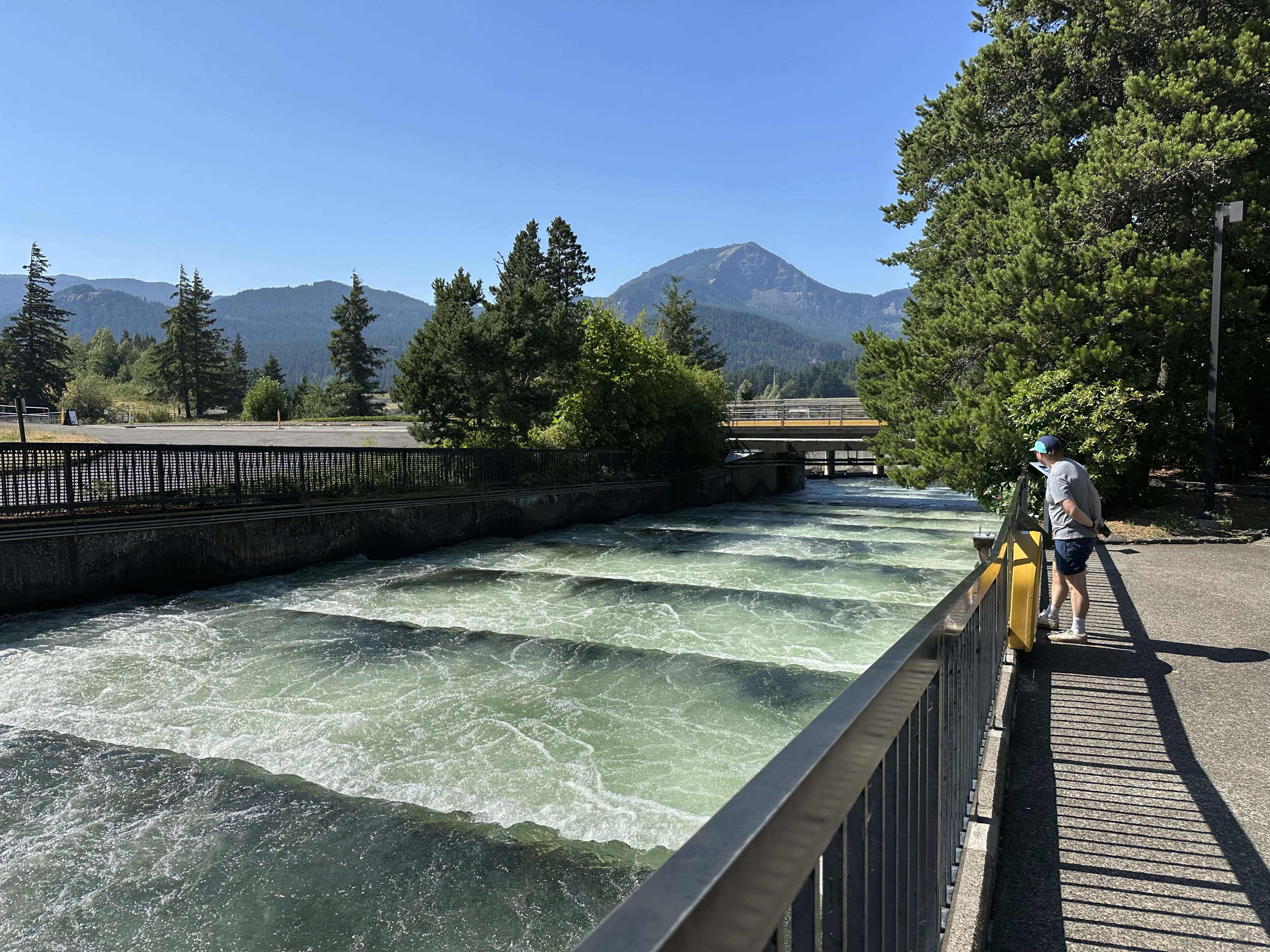 "It was really nice having him as an advisor because he basically connected me with everyone that I interviewed: people in the tribe, people for the fisheries, and people working for the state government,” Kaminski explained.
"It was really nice having him as an advisor because he basically connected me with everyone that I interviewed: people in the tribe, people for the fisheries, and people working for the state government,” Kaminski explained.
Kaminski spent a week and a half in Portland, Oregon, where he visited the Yakama Reservation and spoke with tribal members in person. According to him, this was one of the most inspiring aspects of his experience.
“The most rewarding part was being able to travel there and talk to people who have been affected by all of this. It's completely different from reading about it online, when you go to the place and are standing where all of these people have talked about,” Kaminksi said.
During his visit, he learned about the destructive impacts of climate change and the extensive dam system in the Columbia River Basin which has impacted fish populations. These factors have caused declining populations of fish in the river, particularly salmon, on which the tribes are highly dependent.
Seeking a sustainable future
In addition, Kaminski learned of a planned renewable energy project – the Goldendale Energy Storage Project. Construction of this project would take place next to a significant religious site for one of the Yakama Nation tribes, which he said is emblematic of the government’s historical disregard for tribal interests.
Kaminski ultimately found that the Yakama tribes are primarily focused on improving conditions to ensure a healthier environment for the future rather than receiving reparations in the form of monetary compensation for past injustices.
“I think that enrolled tribal members have a very different perspective on a lot of things than people might think that they do. Many of the people that I talked to made it very clear that they're not interested in compensation; they're interested in planning for the future, moving forward,” Kaminski said. “I thought that was really interesting because it was not really something that I'd thought about. I was looking more towards the past, and they're looking at the future.”
Evolving answers, new questions
Looking to further contribute to the future of the field and passionate about the conditions in which Indigenous communities in the U.S. live and work, Mead Mexia is conducting research on the use of economic indicators to understand the prevalence of crime on Indigenous reservations, investigating specifically the violence faced by Indigenous gender minorities.
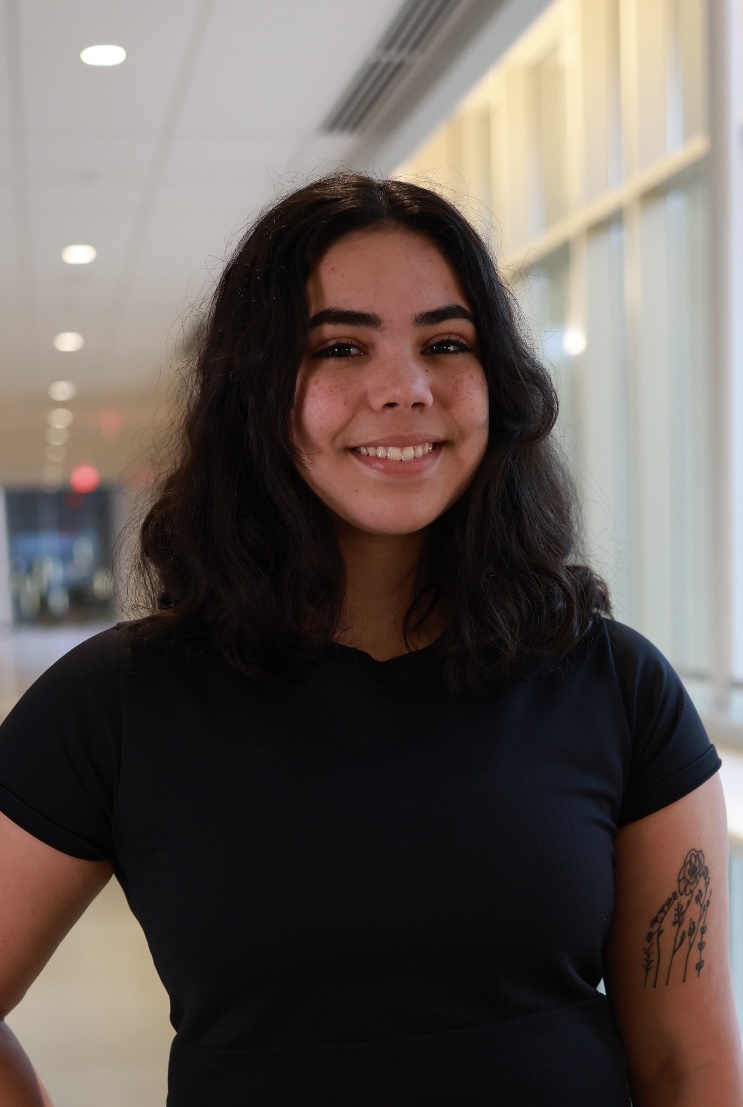 As a Monroe Scholar, Mead Mexia began this project in their first year, but they shared that each year, it feels like they begin their research anew. The process of inquiry, Mead Mexia found, is not straightforward. It is “more of a feedback loop.”
As a Monroe Scholar, Mead Mexia began this project in their first year, but they shared that each year, it feels like they begin their research anew. The process of inquiry, Mead Mexia found, is not straightforward. It is “more of a feedback loop.”
“You read a bunch of papers and then you come up with a question and an idea. Then you read some more papers about your idea and you realize you actually you have to go back and redefine that question,” Mead Mexia said. “Unfortunately, the state of the field right now is that the data informs the questions you can ask.”
Though constrained by the lack of demographic, economic, and social indicators available regarding Indigenous populations, Mead Mexia persevered, working to answer multiple research questions at a time and demonstrating how dynamic the research process can be.
New approaches to academic research
Many of these research questions focused on the legal frameworks that work within, and outside of, Indigenous reservations. For example, they researched a public law that allowed tribal police to contract their own services with the federal government. With further research, however, the law proved to strategically provide tribal governments jurisdiction and autonomy on the reservation but deny them jurisdiction both off the reservation and over non-Indigenous residents on reservations.
The confusing nature of this law, Mead Mexia said, is deliberate. “The phrase is ‘jurisdictional maze.’ It’s so difficult to navigate,” she explained. “When a crime occurs, it’s unclear who is responding, who is investigating, who is prosecuting it. Can the tribal police prosecute it? Will the federal and state police prosecute it?”
Mead Mexia hopes to get “more definitive answers as to how these different arrangements in policing and in tribal court can affect the outcome of violence, and not just what happens afterwards, but creating incentives to prevent violence.”
Even as they remain dedicated to continuing their research, planning to pursue an honors thesis in the years ahead, Mead Mexia remains deeply aware of the historically fraught, and often exploitative, relationship between Indigenous communities and academic research.
“The colonial forces would often kidnap Indigenous people and put them in museums,” Mead Mexia said. “And when that process was frowned upon, it shifted to taking artifacts, to retelling stories that shouldn’t be told, to denying representation.”
Research rooted in respect, representation
To Mead Mexia, representation is key. Acknowledging their own position as a non-Indigenous scholar, Mexia emphasized the importance of Indigenous methodologies and Indigenous perspectives in the production of knowledge. Above all, Mead Mexia advocated for the right of Indigenous communities to their own data because “it is created by them and therefore belongs to them.”
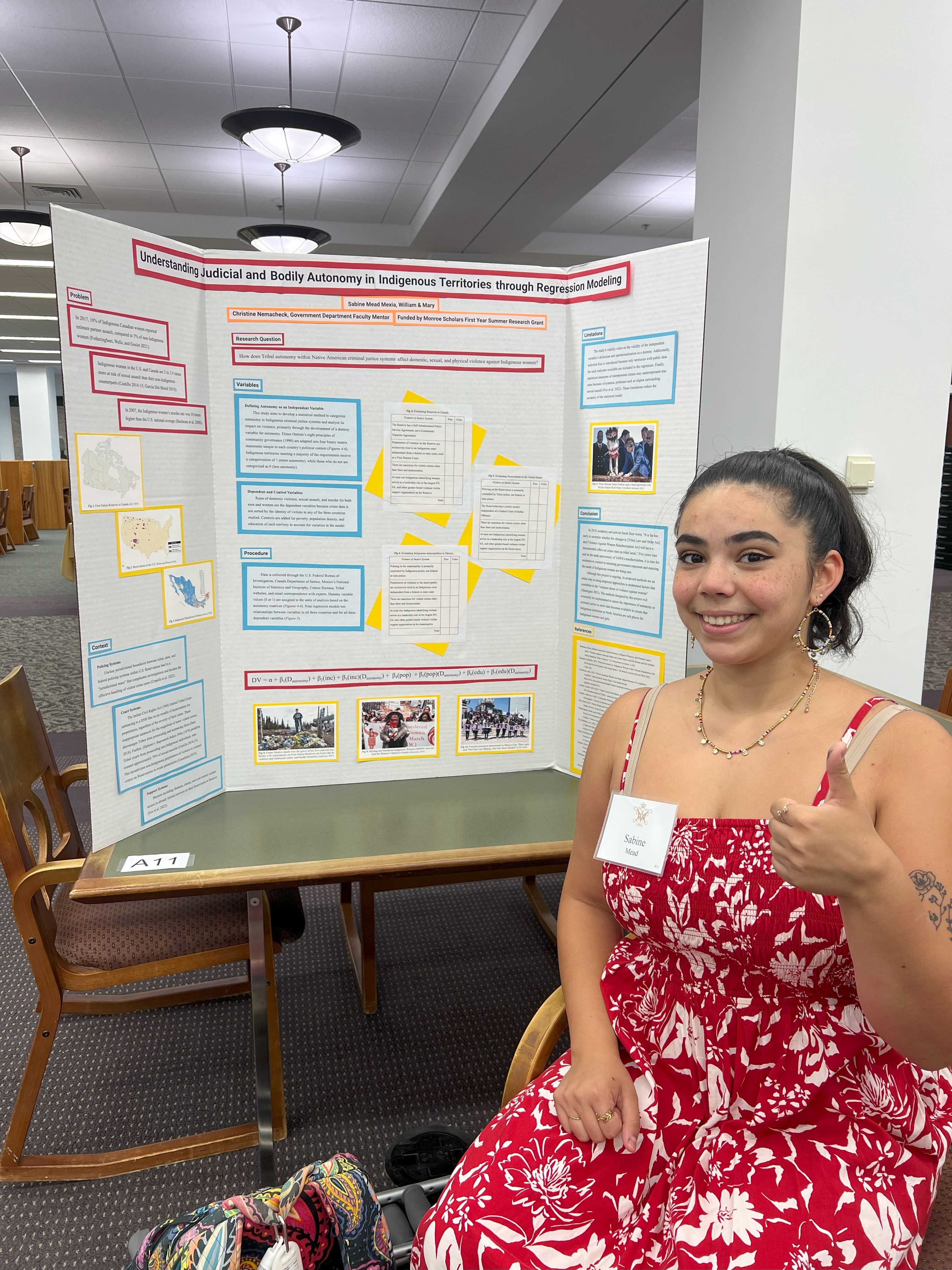 “So much of research and data has been taken from Indigenous groups. The field of data sovereignty looks at: how can they own their own data? How can they be stewards of their own information?” Mead Mexia emphasized.
“So much of research and data has been taken from Indigenous groups. The field of data sovereignty looks at: how can they own their own data? How can they be stewards of their own information?” Mead Mexia emphasized.
Explaining how Indigenous data has historically been used as a weapon to marginalize Indigenous communities, Mead Mexia asks, “How can researchers do the least harm?”
Throughout the many evolutions of their research, Mead Mexia has taken care to maintain “an Indigenous worldview” and work from a basis of respect for Indigenous culture and traditions to ensure their research causes “as little harm as possible.” Mead Mexia shared that this process of centering Indigenous perspectives has been liberating, as she worked to challenge deeply entrenched cultural beliefs.
“There’s just a wealth of knowledge to learn. And I think that it’s been really challenging at times, but really rewarding to challenge my first instinct about things. To challenge the way research has to look – the way our lives have to work,” Mead Mexia said.
Empowered by mentors
Mead Mexia extended her gratitude to the many people who have shaped their research, especially thanking their research mentors Dr. John Parman, professor of economics, and Dr. Christine Nemacheck, Class of 2024 associate professor of government. Mead Mexia also shared that she was grateful for the new scholarship entering the field.
“I think that there is starting to be a reckoning with how little data is out there and how the data that is out there is largely out of Indigenous control,” Mead Mexia added. “Indigenous people are being empowered to tell their own stories through data. And there hasn't really been a precedent for it, but I think the field is growing, and that's very exciting.”
In the future, Mead Mexia sees these Indigenous scholars as the principal contributors to the field.
“One day, it won’t be the federal government, it won’t be the universities, it won’t be these external actors controlling how they can tell their story,” Mead Mexia said. Instead, Indigenous people will “have their stories recognized and have that platform.”
For Mead Mexia and Kaminski, sharing the unique stories of these Indigenous communities is paramount. "Droughts, climate change—it affects everyone. Not necessarily equally, but it does affect everyone,” Kaminski said. “Indigenous people are going to be impacted. They deserve a voice in what's going on.”
If Mexia could impart any message, it is that “your identity always shapes your research.” This is the ideal that has guided their inquiries and lies at the heart of their work.
“You matter in research,” Mead Mexia said. “The stories you tell in research matter.”


















